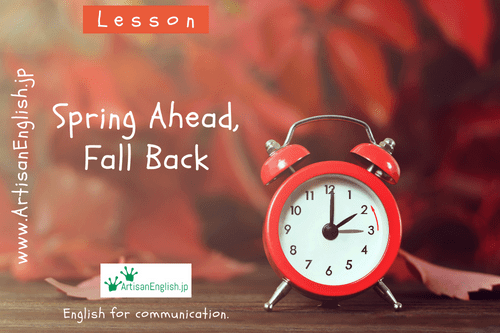
Lesson: Spring Ahead, Fall Back
In many Western countries, the clocks are changed twice a year in March and November. In March, the clocks are moved ahead one hour, meaning there is one 23-hour day. Then in November, the clocks are moved back one, creating a 25-hour day. This is called daylight saving time and is meant to reduce energy use and enable people to use more daylight hours. Japan does not change its clocks now, although it did under American occupation after WWII. As you can imagine, changing the clocks creates much controversy. I miss daylight saving time in Japan. That’s why I wake up before 5:00 a.m. during the summer months to enjoy the early morning daylight.
YouTube / iTunes / Spotify / Radio Public / Pocket Casts / Google Podcasts / Breaker / Overcast
Listen to ArtisanEnglish.jp posts & lesson intros here.
Example Article
Each conversation topic is based on a theme. In order to help students acquire a basic understanding of that topic, four media articles are provided for them to read. I will never test you on the articles, but I strongly suggest you book lessons far enough in advance to give yourself enough time to properly prepare. The better prepared you are, the more benefit you will receive from our conversations.
Below is an example article for this conversation topic.

